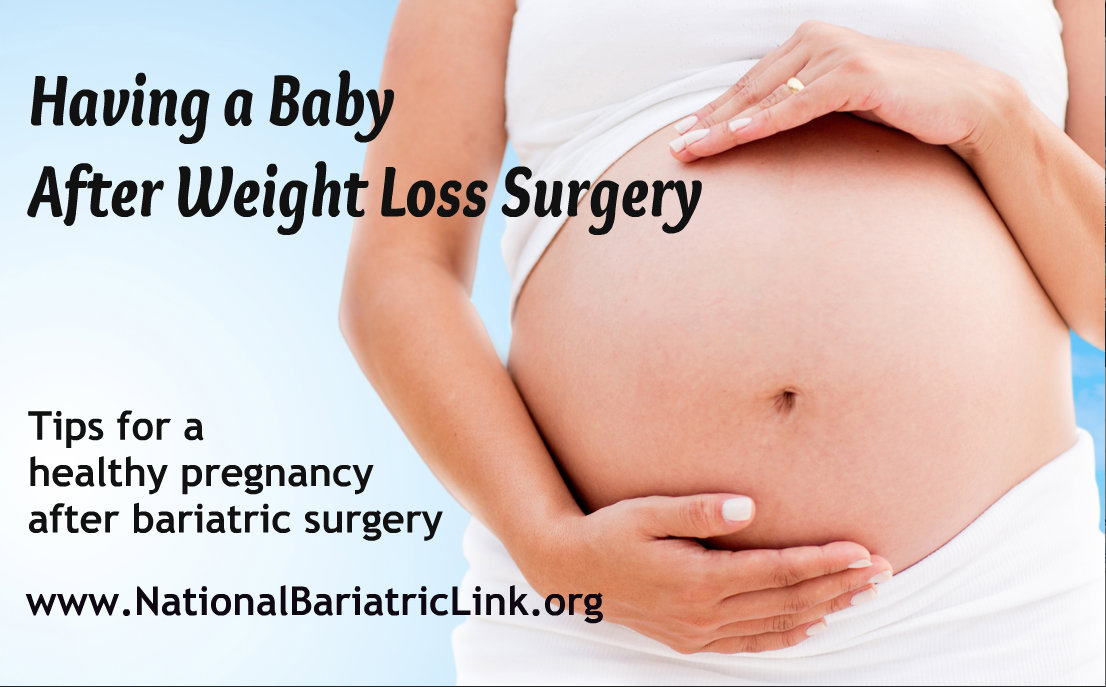From a physical aspect, it is quite possible to have a healthy pregnancy after weight loss surgery. Recent studies suggests that having a baby after Bariatric surgery may actually be safer than a pregnancy complicated by issues stemming from obesity. Some of these issues include Gestational Diabetes, Preeclampsia and Hypertension, all of which can affect both mother and baby. Bariatric surgery has also led to a reduced number of Cesarean births among expectant mothers who are obese.
Having a Baby after Weight Loss Surgery
The most important issue surrounding your choice to have a baby after weight loss surgery is the timing. You should wait until you have met your weight loss goal before deciding to have a baby. When your weight is stable, your body is ready to offer the nutrients your baby will need. becoming pregnant while still undergoing a rapid or consistent weight loss could lead to a low birth weight for your baby.
Most doctors and nutritionists agree that 18 to 24 months is an ideal length of time for Bariatric patients to conceive after any weight loss surgery. If you chose the lap band for your weight loss surgery, some doctors feel that twelve months is an appropriate length of time to wait before having a baby, but you may need to have your band readjusted in order to meet the needs of your body during pregnancy.
It is important to remember that your weight loss after Bariatric surgery will be quite significant in the first year, and gradual in the second year. By the third year, most Bariatric patients will have met their weight loss goals and have learned to maintain their ideal weight. Once the weight has become stable, a healthy pregnancy is not only possible but probable.
Consult Your Physician
Once you have decided to have a baby after weight loss surgery, consult your physician. You will need preconception planning and your doctor may want to consider nutritional supplements. Some of the more popular vitamin and mineral supplements for those trying to conceive after rapid weight loss include Calcium, Vitamin B12, Folic Acid, Iron and Vitamin D.
It may be a good idea to begin Prenatal Vitamins before conception as well as during the length of the pregnancy. Other professionals can be of great help for those who become pregnant after Bariatric surgery include registered dietitians and nutritionists, offering help in the areas of weight gain and nutrition.
The final decision to have a baby after weight loss surgery should be yours, under the advice of your trusted medical doctor. Because every person’s situation is different, your doctor will best advise you according to your personal health history. This will help you determine whether a healthy pregnancy is possible, and if it is the right choice for you, after any Bariatric surgery procedure.


